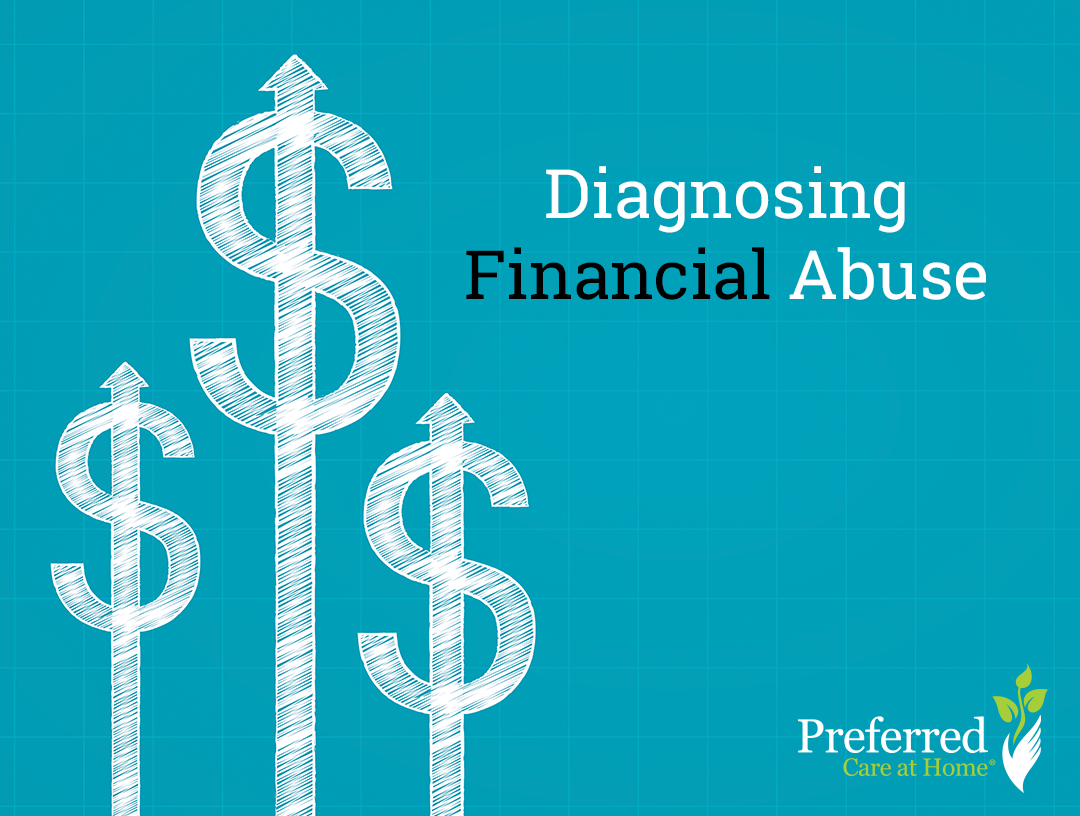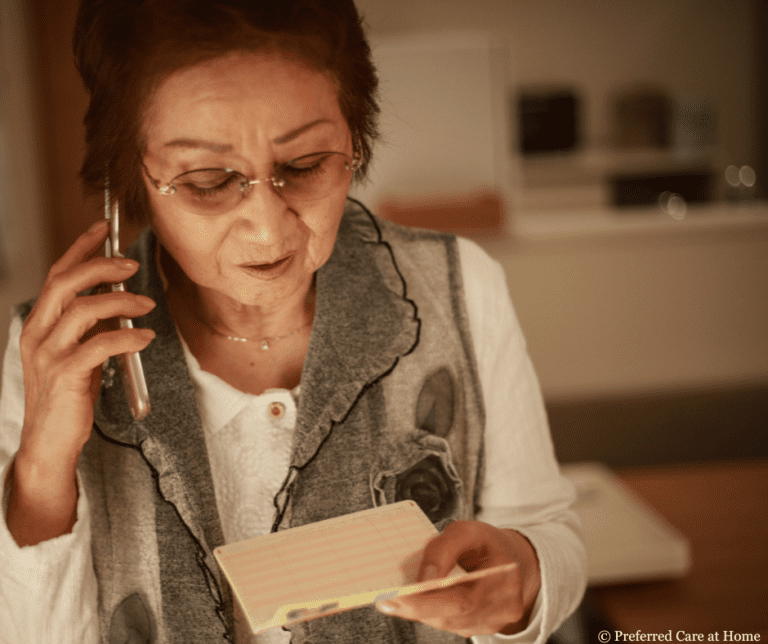
To fight financial abuse, you must first identify it — but as you’d imagine, identifying it is the hardest part. Read on to find out what to look for!
Like damage done by a virus or a parasite, the acts and effects of elder abuse are often hidden in secrecy and silence.
To end it you must first identify it — but as you’d imagine, identifying it is the hardest part.
As it is the case with hard-to-diagnose diseases and ailments, the way to uncover abuse is to look for signs, symptoms, and patterns.
Given enough time, the warning signs are inevitable, but because abuse can come in all forms, you must look for the abuse-specific signs. For instance, financial abuse is the illegal or improper use of another person’s funds, property or assets without their express permission or knowledge, by a person in a position of trust.
What are some signs of financial abuse?
For one, a substantial increase in account activity, particularly when someone is assisting the individual with their finances a common sign of financial abuse.
For this, we can look to the Reginald Keith‘s case and the $90,000 he stole from his 89-year-old adoptive father. Authorities in Georgia were able to eventually uncover his abuse, but only after people notice the pattern forged checks over the course of four years. He was using the checks to pay for his personal expenses, even going as far as to buy himself a luxury car.
Another common sign of abuse is when a caretaker or family member isolates the individual from their friends and family. This is especially suspicious when the individual is known for being a friendly or outgoing and social person.
This particular sign was one of the main reasons a grandson filed an abuse complaint against his own father. The victim in this story was famous New York socialite Brooke Astor, and the abuser was her son and guardian, Anthony D. Marshall.
Marshall was eventually convicted in 2009 for financial abuse. He had given himself over a million dollars while acting as his mother’s guardian.
Here are some other common signs of financial abuse according to Mass.gov:
- The individual expresses concern that he/she does not have enough money for basic needs
- The individual is confused about missing funds in accounts
- A sudden increase in checking overdrafts
- Unusually large cash withdrawals or transfers to other accounts from a joint bank account, without the individual’s knowledge or consent
- The individual cannot obtain checking or savings passbooks from person assisting with finances, or passbook/checkbook are frequently missing
- Individual signs blank checks, with large amounts filled in by another party
- Someone else signs/forges individual’s signature.
- Individual complains that furniture, jewelry, credit cards, or other items are missing
- Individual expresses fear that he/she will be evicted from home, or placed in an institution if money is not given to the caregiver
- A Guardianship or Conservatorship is obtained for an individual who appears competent and has recently been handling her/his own finances
If any of these signs financial abuse are apparent in the lives of someone you know, please alert the proper authorities. To find a local adult protective services agency, please consult this map and act today!
If you have questions about senior home
care services or if you want to start care:
Related Posts

August 15, 2022
Three Simple Tips to Avoid Financial Scams
Ashly Luckose, Esq.

August 11, 2022
Being Aware of Elder Abuse
Ashly Luckose, Esq.

May 13, 2022
How A Senior Resource Panel Can Help Protect Your Blindside
Ashly Luckose, Esq.
Helping seniors age in place, with dignity & grace.